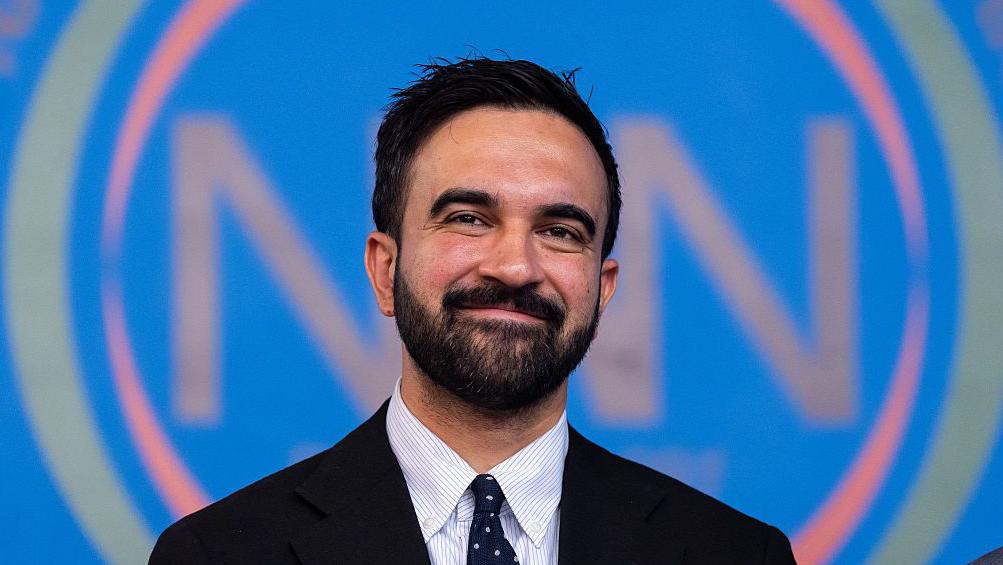In a stunning political maneuver, Zoran Mamdani, the newly elected mayor of New York City, has announced plans to reach out to former President Donald Trump before officially taking office. This unprecedented move comes as Mamdani, a self-identified Democratic socialist, attempts to build a working relationship with the man who once labeled him a “little communist.” The implications of this outreach reverberate far beyond mere political niceties, signaling a potential shift in the landscape of governance in a city that relies heavily on federal support.
 Mamdani’s decision to initiate a phone call with Trump raises eyebrows and questions across the political spectrum. Critics argue that this gesture could be perceived as a betrayal of his progressive base, while supporters may view it as a pragmatic approach to governance in a divided political climate. The stakes are high: New York City depends on federal funding for crucial services and infrastructure, and Mamdani’s willingness to engage with Trump could determine the city’s financial future.
Mamdani’s decision to initiate a phone call with Trump raises eyebrows and questions across the political spectrum. Critics argue that this gesture could be perceived as a betrayal of his progressive base, while supporters may view it as a pragmatic approach to governance in a divided political climate. The stakes are high: New York City depends on federal funding for crucial services and infrastructure, and Mamdani’s willingness to engage with Trump could determine the city’s financial future.
This move is not merely about personal rapport; it represents a critical recognition of the power dynamics at play. Trump, who has a history of leveraging federal resources against perceived adversarial cities, holds significant influence over the funding that New York desperately needs. As Mamdani prepares to take office, he is acutely aware that navigating these waters requires not just conviction but a willingness to compromise.
 The political theater surrounding this development is palpable. For Mamdani, the challenge lies in balancing the ideals he campaigned on with the harsh realities of governance. His previous bold statements, such as his intention to arrest Israeli Prime Minister Netanyahu, have already drawn scrutiny regarding his understanding of political limits. Now, as he extends an olive branch to Trump, he must tread carefully to avoid alienating the very constituents who propelled him to victory.
The political theater surrounding this development is palpable. For Mamdani, the challenge lies in balancing the ideals he campaigned on with the harsh realities of governance. His previous bold statements, such as his intention to arrest Israeli Prime Minister Netanyahu, have already drawn scrutiny regarding his understanding of political limits. Now, as he extends an olive branch to Trump, he must tread carefully to avoid alienating the very constituents who propelled him to victory.
The media’s reaction has been swift and polarized, framing Mamdani’s outreach as either a savvy political strategy or a capitulation to the establishment. As different narratives emerge, the public will have to navigate a complex landscape of opinions shaped by their media consumption. Will Mamdani’s call be viewed as an act of mature leadership or a sign of weakness? The answer could redefine his political capital before he even takes office.
 As the nation watches, Mamdani’s decision to reach out to Trump underscores a broader trend in American politics: the necessity of dialogue across ideological divides. In an era marked by extreme partisanship, the ability to engage with opponents is becoming a crucial skill for effective leadership. This phone call could set the tone for Mamdani’s administration, and the outcome may very well influence the future of New York City’s governance.
As the nation watches, Mamdani’s decision to reach out to Trump underscores a broader trend in American politics: the necessity of dialogue across ideological divides. In an era marked by extreme partisanship, the ability to engage with opponents is becoming a crucial skill for effective leadership. This phone call could set the tone for Mamdani’s administration, and the outcome may very well influence the future of New York City’s governance.
In the coming days, all eyes will be on the response from Trump and the subsequent fallout. Will this outreach lead to a constructive partnership, or will it backfire, leaving Mamdani to grapple with the consequences? The clock is ticking, and the political ramifications of this bold move are poised to unfold in real time. As the stakes rise, the question remains: can Mamdani navigate the treacherous waters of compromise without losing sight of his progressive ideals? The answer will shape the future of leadership in New York City and beyond.





